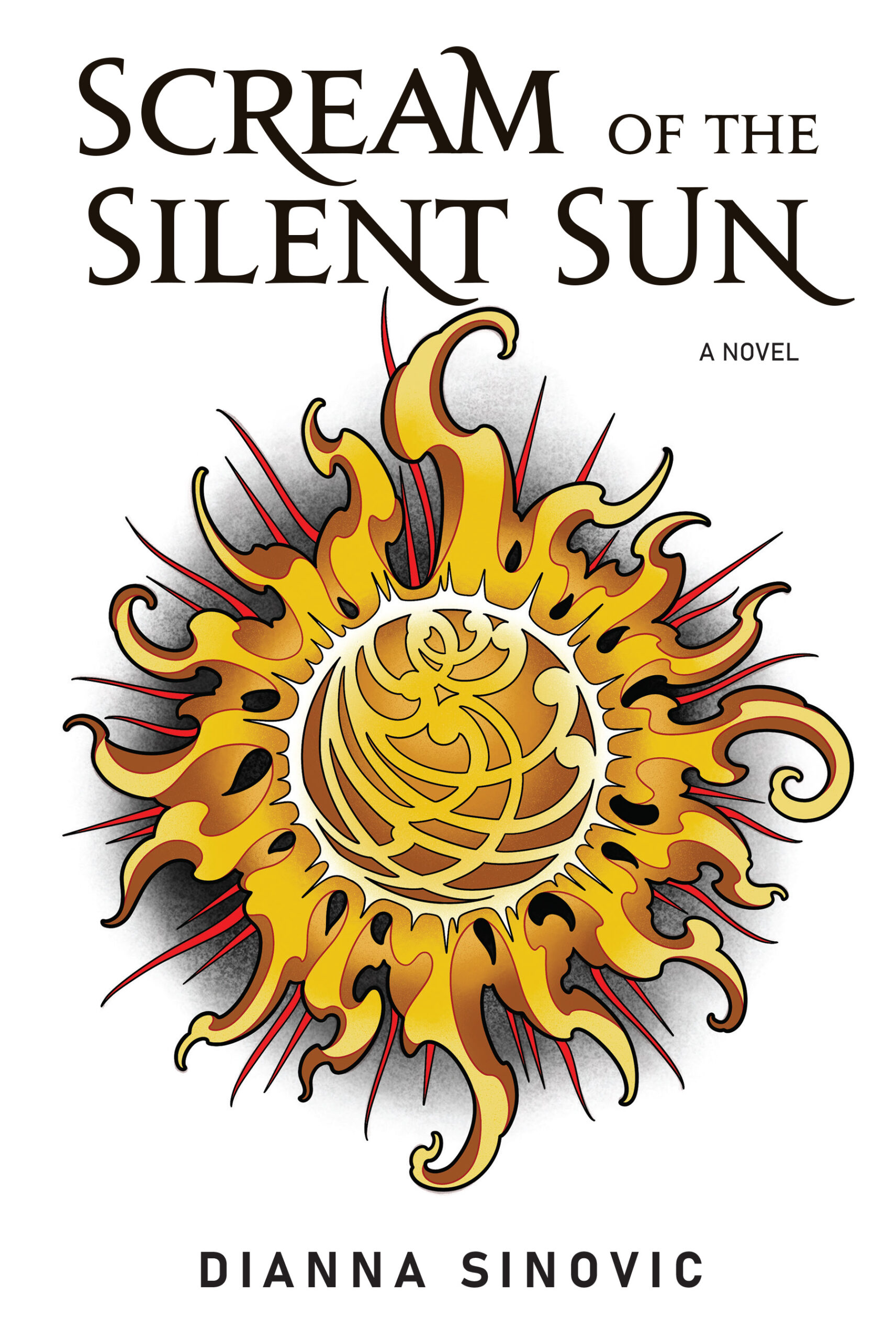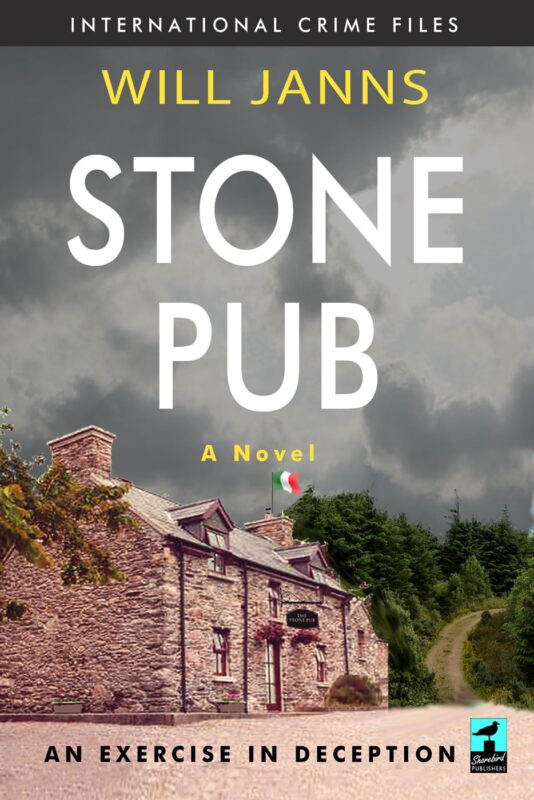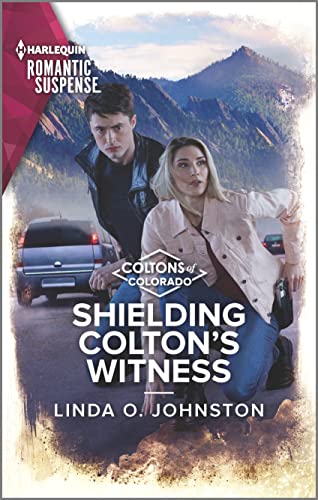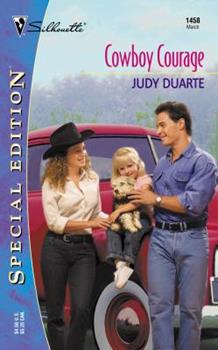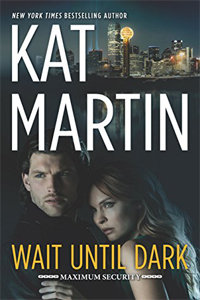What My 2026 Writing Process Looks Like
January 12, 2026 by Denise M. Colby in category The Writing Journey by Denise Colby, Writing tagged as Denise M. Colby, Planning, writing processIt’s a new year and I’m sharing what my 2026 writing process looks like for my first post of the year. Part of this is for me to do an honest review of what is working and what is not. It also reminds me of what I need to do. I’m currently coming out of an editing phase and need to dive into writing the next book. Remembering what works for me helps. I did some of this in my December 2025 blog post as I reviewed my word for the year – flourish

Then I thought it would be helpful to write it out and share it. Holding myself accountable, but also providing others with ideas that they may have not tried yet.
I have found that there are multiple things needed in order to complete a manuscript. Some of this is what comes inside of a person. Determination. Discipline. Action.
But as many authors have asked as they write. What type of action? How do I find time? What type of schedule do I keep? How do I know if I’m doing the right things? What comes next? Asked a bazilion times, over and over.
Writing is a Marathon, Not a Sprint
When I got my contract, I had my first book finished and two rough drafts done. Or what I thought were rought drafts. I had to literally start over, and so the dates I had comitted to, I had to figure out how to deliver. It took my twelve years to write and publish the first book. Six months to write the next three. Add into that mix, editing sessions, proofing sessions, cover design, back matter, inside matter, launch team, promotions, newsletters, and the list goes on. There are a lot of things to juggle.
And you know what? I did it. I’ve released three books in the last two years, with the fourth one releasing in May 2026. Check out my Best-laid Plans Series page on Amazon.
It’s amazing when we have deadlines how we make it work.
But I also got more streamlined the further I went. This has helped me immensely.
The Writing Process I Morphed Into
By far there are a few things I know now I can’t live without in order to write, and I will continue to use these writing processes for 2026.
First is my critique group. Their feedback and support has been a continuous blessing. We send a chapter a week when we need something reviewed. Not all of us are in the writing phase so it’s not everyone sending a chapter a week. This helps. It’s like a rotation. And it has worked for us.
The next thing on my list would be the writing sprint group I belong to. It would be very easy for me to sleep in, get distracted by laundry, or not show up when it’s only myself. But having a 7am zoom call with others writers has helped not only finish three books, I have resources at my fingertips to ask during our five minute breaks.
So if you do not have a community of writers to work with, I suggest joining a local writing group, or an online group. There are many available by genre or in general. Ask here what you are looking for and I can provide links to one of the five groups I belong to (yes, five – and I love them all in different ways.)
I also set realistic weekly goals for myself. I love to cross out something on a list. So I write out all the chapters I need to write, figure out how many writing sessions (I use twenty-five minute sprints where I can write at least 500 words as my calculator) I need to do, then plan for so many words in a week.
When editing, I create a page with the chapter numbers and put a sticker by them to tell me they are done. All of this adds fun, accountability, and helps me see my goals accomplished.
Other writing tools I’ve used and will continue in 2026
Focus@will – this website has allowed me to pick music and sounds that fit my mood, and helps elevate my brain focus while writing. I feel I write stronger when I use it. It has a timer so I keep to the twenty-five minute sprints I’m now used to.
Scrivener – this is the software I use to write my manuscripts
Apple notes – I started using this two years ago and it has worked well. It syncs between my computer, phone, and ipad, so that when an idea hits, I can capture it and then access it when and where I need to. I have built a lot of folders within notes. One folder by book. When writing the book, I have scene ideas and brainstorms, then later I put all my launch info in one note (with links).
I’ve added a research folder and put all the links to things there as I find things. Yes, Scrivener has a place for research but I use that for book specific things. The research I’m leaving in notes work across my series. So in some ways I’ve made a little story bible within notes for easy access.
Other folders I’ve added include a social media folder where I type out my posts first (so I can control the spacing and links), as well as marketing folders for newsletters, bookfunnel promotions, blog posts (I have all my links on a page). This has come in handy when I’ve needed to find things quickly. Much faster than trying to find the file I saved.
2026 Writing Process improvements
I always love starting a new year with reflection and planning. Even though I hope this year is more of the same writing process I’m already doing, I hope it continues to become more refined. so I can write and publish more books.
What is part of your writing process wheelhouse that you can share with all of us?
0 0 Read moreHow To ReStart Writing After A Prolonged Break
July 12, 2023 by Denise M. Colby in category The Writing Journey by Denise Colby tagged as Denise M. Colby, writerslife, writing processHow do you restart writing after taking a prolonged break? Do you jump in to a daily quota right away or start slowly one time a week working on your manuscript? Do you spend time reading what you wrote, first? Or, do you start writing a new scene to work with something fresh? Do you start a completely new project, or go back to the one you were working on before?

I don’t think there is a wrong way to restart writing, but there may be ideas we can use to help us get back into strong habits right away. I’d love to hear what you’ve done. Share them in the comments below.
As I am writing this blog post, I’m facing this very thing, restarting writing. I took a few months off to enjoy my sons’ graduations (college in May, hs in June) which I wrote about in last month’s blog post, and now I’m ready to write and edit again. As I started working on a few scenes over the weekend, the time flies. And I need to it to be quiet around me, which is hard to do with everyone home. All of these thoughts made me realize I need a game plan. And I couldn’t remember what I did before.
One thing I’m truly thankful for is my critique group. With a possibility of a weekly submission, I have a built-in deadline to help me complete a task. This is a huge motivator to restart writing.
Next I need to figure out when everyone will not be home, or I need to go somewhere to write. I love my large monitor, but maybe getting out the house will be exactly the best approach.
Denise is writing a western historical series set in 1869 California. She’s in the middle of editing the first book in the series, a full-length novel as well as a fun rom-com novella, with a few side characters.
0 0 Read moreTrying vs. Training by Kitty Bucholtz
March 9, 2023 by Kitty Bucholtz in category It's Worth It by Kitty Bucholtz tagged as Featured Author of the Month, It's Worth It, Kitty Bucholtz, writing process
A few days ago, my friend Joe sent a link to a podcast episode he thought some of his friends would like. Now Joe is a professional personal trainer and very athletic, so when I started listening to the episode host, Craig Groeschel of Life.Church, talk about jujutsu and wrestling, I was thinking that Joe overestimated my interest in getting more fit. Hahaha! (Joe helped me get in better shape when I was training for a half marathon a couple years ago.)
But as I listened to this episode I started thinking about writing. What is the difference between “trying” and “training” when it comes to writing, finishing, and publishing books?
To give you an example, I’ve been “trying” to finish rebranding and republishing my backlist for the last two years. Two years?! Yes! And I can explain every single thing that has come up, gone wrong, had to be fixed, and all the reasons finishing has been bumped lower on my priority list every month. But that is what “trying” looks like.
I’m trying, but I got busy.
I’m trying, but I got sick.
I’m trying, but I had to wait for my audiobook narrator to be free to make the changes.
I’m trying, but after I upgraded Vellum a couple of my old files wouldn’t open.
I’m trying, but I should put my clients’ work first ahead of my own, always.
And on and on. See any of your excuses — good reasons — for why something in your writing life still isn’t done?
Now let’s compare it to training. When I’m training to run a half marathon, I have to commit in advance to 4-6 months of work because I’m about to pre-pay for that race. At the beginning, I’ll need to take about 5-10 hours a week to focus on running and weight training. By the month before the race, that number is up to at least 15 hours a week. That’s just to finish the race, avoid injuries, and be in the range of my average time. To try to beat my best time will take more work (i.e., more time).
Sitting here in my warm living room on a snowy cold day in March, that doesn’t sound too appealing. (If I’m thinking about it on a day the sun’s out, it gets more appealing! Haha!) But I really like the idea of beating my best time, faster for me than I’ve ever run before, at the age of 55 (in two weeks!). After all, I beat my best time two years ago when I was 53. What if I could have my all-time fastest race when I’m 60?
Now I’m weighing excitement against what I’ll have to do (see above) and what I’ll have to give up (time that I could be writing, watching TV, hanging out with friends).
That’s the difference between trying and training — what am I willing to commit to, what will I do more of, and what am I willing to give up in order to meet my goals?
I had all of these ah-ha’s going off in my head during that 30-minute podcast, and I immediately saw a couple areas of my writing life where I needed to STOP TRYING. “I’m trying” is often a phrase that is waiting to be filled with excuses (even good ones!). But “I’m training” says I’m learning how to do what I need to do, I’m applying what I’m learning, and I’m going to keep evaluating my progress and tweaking what I do.
Whether we’re on book one or book one hundred, there is someone we can learn from. If something was working for us once but no longer works, there is something we can tweak to get back on track — or get onto a different track we now want to be on.
What’s going on in your life, writing or otherwise, that is now waving its hand at you, shouting, “Over here! Stop trying! Start training!” You can do it!
And it will be worth it! 😀
0 0 Read moreConsistently Write In Order to Meet Your Writing Goals
September 12, 2022 by Denise M. Colby in category The Writing Journey by Denise Colby tagged as Denise M. Colby, encouragement, writing processEach week my progress feels limited, but add the work all up together (it’s the 37th Monday of the year) and I’m finding that consistently writing a small amount week to week is working for me. It’s fun to check in mid-year, or in this case, September, and take a peek at the goals I set for the year. Am I even close? Did I miss my mark this year? Should I give up writing?

And learn I HAVE made progress.
It’s just so hard to see when we are going word by word, page by page.
Be Encouraged to Keep Writing Consistently
I want to encourage my writing friends to not give up. Set realistic goals for yourself on a week to week basis and keep plugging along. Stay steady. Be persistent.
Have I reached all my goals? No. But the year isn’t done yet. And yes, I have some far-reaching goals that can overwhelm me if I try to hurry up and get them done all at once. But this is where breaking tasks into manageable chunks help.
Put in the work (my word for the year) and you will see results. If you are like me, figuring out what that work should be in each stage of the process can be challenging. I’m not able to focus on my writing full-time at this stage in my life, so my writing consistently has to be squeezed in between my day job and the family commitments.
How do I do that?
Find The Schedule to Help You Consistently Write
At first I selected a specific day and time, one day a week. But that fell through when other required events popped up. Then I tried to just touch my ms sometime during the week. Constantly touching your MS even if it’s one page at a time is better than no writing at all. But it was hit or miss how far I would get and there wasn’t any accountability to myself to keep going.
Then a door opened that was exactly what I needed (which is something that has happened a lot in my writing journey). A new critique group came along at the perfect time within one of my writing groups. Out of all the writing clubs I belong too, this was really where I needed to put in the time. But I was afraid of the commitment. Yet it’s the commitment to consistently write that helps us complete a book. So finding the way that works for you to do that is key.
So this critique group came along at the perfect time. Sure I wanted my MS completely edited and ready to pitch ASAP. But instead I’m focusing on a chapter a week, by relooking at the scenes, editing, submitting and getting great feedback. And learning how to provide feedback back to others. Which has helped in many ways as well.
Overall, this has helped me streamline my story and make it stronger. And I’ve become a better writer. The bonus with working on this one writing task consistently every week? By the end of the year, I’ll have gotten feedback on every chapter. This was the accountability I needed.
Choose Your Own Way to Be Consistent
I’m not writing this post to encourage you to join a critique group. Maybe a critique group isn’t for you at this stage. For each writer, what helps you consistently write can be different. So know yourself. And spend some time figuring out what you need to do at this stage in your writing. What you need can change. Allow it to change. There just needs to be forward momentum (which happens when we consistently write) in order for us to reach our goals.
It’s the consistently writing, however we approach it, that counts.
Denise M. Colby loves to write words of encouragement blog posts. She also loves to write about her word of the year she chooses each year. She’s been working on her first manuscript for a long time and hopes to publish soon, since she has lots of other stories in her head waiting to be put on the page.
0 1 Read moreWhat Is a Writing Partner and Why the Hell Do I Need One?
September 3, 2020 by Janet Elizabeth Lynn and Will Zeilinger in category Partners in Crime by Janet Elizabeth Lynn & Will Zeilinger tagged as writing partners, writing process
A writing partner or co-writer should be an actual writer—and someone you trust, respect, admire, and support, because two heads are better than one.
Writing is a lonely profession, and many times ideas get stuck in our heads. Having someone you can contact who knows you and the project.

Co-writers and/or writing partners are there for early feedback, bouncing ideas, critique, story direction, moral support, and so much more!
Some of the greatest writing, from novels to screenplays, to music, has been done by partners. Why is this so? Collaborative writing is one of the most productive and successful ways to write—If you find the right partner.
A question many writers have asked us is “How exactly does that work?”
There’s no one-size-fits-all answer, but there are some strategies that can help, whether you need someone to co-write a project or someone to share a writing career… and maybe even life.
Your Writing Partner Might Be Right Under Your Nose
Because writing, like collaboration, is an intimate relationship, it’s best to begin looking at people you know. If you’ve figured out how to be together, you’ll have a better chance of successfully writing together. So, it’s no surprise that most successful writing teams have grown from close personal relationships—friends or family or lovers.
But what if you don’t have a friend, a spouse, sibling or lover who is “partner worthy?” If you can’t find someone you can collaborate with among the people you know, go meet more people. As the circle of writers you know expands, so do your chances of finding a compatible partner for your writing.
If you’re a college student, enroll a writing class, or take a drama class, or join a comedy group. Alternatively, attend writers’ conferences. Join writers’ organizations. It may sound overwhelming, but you have to get out there . . . socialize.
Remember, it’s crucial to find someone with qualities that lend themselves to a good partnership. Look at these for example:
Similar Tastes and Sensibilities

Have the same sense of humor. This is a key factor for a human connection and a good collaboration. You may share inspiration, like what makes you laugh, or what keeps you on the edge of your seat. You can even consider what bores you.
Yin and Yang—Complimentary Strengths
Partners in any creative endeavor should have strengths that help the other, and each should be able to buoy up the other’s weaknesses. You need to understand your own strengths and keep this in mind as you search for a co-writer or writing partner.
Must Play Well With Others
Even the most compatible, peace-loving co-writers or writing partners will, on occasion, argue, and that’s not a bad thing. Different points of view are an integral part of collaboration. It is precisely the reason for getting together. Sharing differing views of the same project brings life to the final product.
Have Some Respect
I’ve emphasized the importance of knowing yourself and your prospective co-writer or writing partner, but it’s equally important to know their work. If you don’t, read something they’ve written. Request a writing sample and offer one of yours. If you don’t have respect for their writing (or vice versa), run don’t walk to the next candidate.
In the end, no one can know if writing together will work until they’ve tried it.
So choose the most promising co-writer or writing partner and see if it clicks. You just never know.
Affiliate Links
A Slice of Orange is an affiliate with some of the booksellers listed on this website, including Barnes & Nobel, Books A Million, iBooks, Kobo, and Smashwords. This means A Slice of Orange may earn a small advertising fee from sales made through the links used on this website. There are reminders of these affiliate links on the pages for individual books.
Search A Slice of Orange
Find a Column
Archives
Featured Books
Scream of the Silent Sun
Will Quinn Thomas find her missing brother in time to save him?
More info →
SHIELDING COLTON’S WITNESS
She has a witness to protect… And her own heart to defend!
More info →Newsletter
Contributing Authors
Search A Slice of Orange
Find a Column
Archives
Authors in the Bookstore
- A. E. Decker
- A. J. Scudiere
- A.J. Sidransky
- A.M. Roark
- Abby Collette
- Alanna Lucus
- Albert Marrin
- Alice Duncan
- Alina K. Field
- Alison Green Myers
- Andi Lawrencovna
- Andrew C Raiford
- Angela Pryce
- Aviva Vaughn
- Barbara Ankrum
- Bethlehem Writers Group, LLC
- Carol L. Wright
- Celeste Barclay
- Christina Alexandra
- Christopher D. Ochs
- Claire Davon
- Claire Naden
- Courtnee Turner Hoyle
- Courtney Annicchiarico
- D. Lieber
- Daniel V. Meier Jr.
- Debra Dixon
- Debra H. Goldstein
- Debra Holland
- Dee Ann Palmer
- Denise M. Colby
- Diane Benefiel
- Diane Sismour
- Dianna Sinovic
- DT Krippene
- E.B. Dawson
- Emilie Dallaire
- Emily Brightwell
- Emily PW Murphy
- Fae Rowen
- Faith L. Justice
- Frances Amati
- Geralyn Corcillo
- Glynnis Campbell
- Greg Jolley
- H. O. Charles
- Jaclyn Roché
- Jacqueline Diamond
- Janet Lynn and Will Zeilinger
- Jaya Mehta
- Jeannine Atkins
- Jeff Baird
- Jenna Barwin
- Jenne Kern
- Jennifer D. Bokal
- Jennifer Lyon
- Jerome W. McFadden
- Jill Piscitello
- Jina Bacarr
- Jo A. Hiestand
- Jodi Bogert
- Jolina Petersheim
- Jonathan Maberry
- Joy Allyson
- Judy Duarte
- Justin Murphy
- Justine Davis
- Kat Martin
- Kidd Wadsworth
- Kitty Bucholtz
- Kristy Tate
- Larry Deibert
- Larry Hamilton
- Laura Drake
- Laurie Stevens
- Leslie Knowles
- Li-Ying Lundquist
- Linda Carroll-Bradd
- Linda Lappin
- Linda McLaughlin
- Linda O. Johnston
- Lisa Preston
- Lolo Paige
- Loran Holt
- Lynette M. Burrows
- Lyssa Kay Adams
- Madeline Ash
- Margarita Engle
- Marguerite Quantaine
- Marianne H. Donley
- Mary Castillo
- Maureen Klovers
- Megan Haskell
- Melanie Waterbury
- Melisa Rivero
- Melissa Chambers
- Melodie Winawer
- Meriam Wilhelm
- Mikel J. Wilson
- Mindy Neff
- Monica McCabe
- Nancy Brashear
- Neetu Malik
- Nikki Prince
- Once Upon Anthologies
- Paula Gail Benson
- Penny Reid
- Peter J Barbour
- Priscilla Oliveras
- R. H. Kohno
- Rachel Hailey
- Ralph Hieb
- Ramcy Diek
- Ransom Stephens
- Rebecca Forster
- Renae Wrich
- Roxy Matthews
- Ryder Hunte Clancy
- Sally Paradysz
- Sheila Colón-Bagley
- Simone de Muñoz
- Sophie Barnes
- Susan Kaye Quinn
- Susan Lynn Meyer
- Susan Squires
- T. D. Fox
- Tara C. Allred
- Tara Lain
- Tari Lynn Jewett
- Terri Osburn
- Tracy Reed
- Vera Jane Cook
- Vicki Crum
- Writing Something Romantic
Affiliate Links
A Slice of Orange is an affiliate with some of the booksellers listed on this website, including Barnes & Nobel, Books A Million, iBooks, Kobo, and Smashwords. This means A Slice of Orange may earn a small advertising fee from sales made through the links used on this website. There are reminders of these affiliate links on the pages for individual books.

